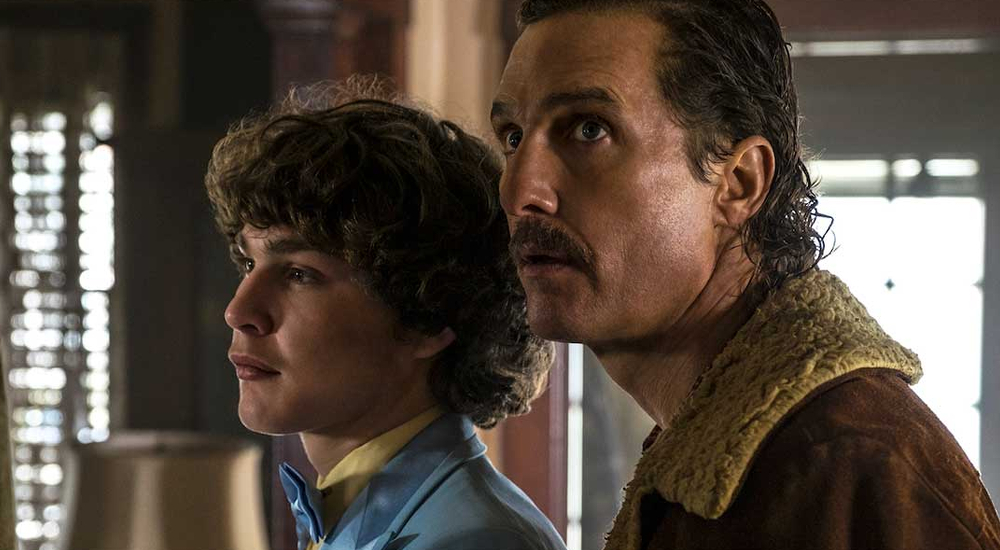“You gotta be careful what you say in front of us.”
Slow characterization and a slew of clichés handicap Yann Demange’s White Boy Rick, sending it to the bottom of the list of doomed cop dramas.
Set in the depressed era of 1980s Detroit, White Boy Rick centers around the Wershe’s blue-collar home, a dark and dingy spot where everyone appears to be struggling from either addiction, depression or a combination of both. Laws are followed more out of convenience than necessity, and guns are just about everywhere - thanks in large part to Richard Sr.’s job as a licensed gun dealer and side hustle manufacturing illegal silencers (a far cry from his dreams of opening a chain of video stores).
His son, Rick Jr., is tasked with selling guns to known drug dealers, making him a prime target for a pair of federal agents who coerce him into a dangerous web of lies as he begins to work as a double agent. Unaware of the times, Rick Jr. continues down the dark rabbit hole of drugs and deceit, a dangerous game to play given the current War on Drugs mantra, signed into effect by President Nixon.
Matthew McConaughey embodies the role of Rick Sr., offering up a gritty and heartfelt performance that proves his turn in Dallas Buyer’s Club was not a fluke. HIs ability to expose a rough outer shell while keeping things soft and personal on the inside allows the audience to connect with the father who will do anything to provide for his children. His interaction with his son is admirable, even if they are often misguided and horrifically landed - Rick Sr. is a man who doesn’t know any better, and throughout the film, you begin to wish that he did.
Richie Merritt, in his debut performance, goes toe to toe with his Oscar-winning father. Though a different role in both context and depth, Rick Jr.'s innocence shines through from the onset. Though he is one who can quickly adapt to his surroundings, no matter his perceived awareness (he watches his sister fall victim to the very stuff he sells), he suffers from a lack of big-picture understanding. He becomes so consumed within the context of himself and his family that he can’t see the culture around him. He doesn’t understand the process or the ramifications of his actions. He is a trusting adolescent who also doesn’t know better, a painful combination when paired with his parental figure.
Sadly, amidst all the undercover operations and under the table dealings, the heart of the story becomes lost in the shuffle. What could have been a beautifully contrived character piece becomes an over the top drama that lacks both direction and awareness. What’s worse, the film wastes two incredible performances amid the chaos.
Characterization, though strong in the onset, falters in the latter half of the film; as does plot development and tone. We occasionally become distracted by the snow-covered streets and eye-popping cinematography, but the story progresses without much thought, barreling down the road to nowhere fast, promising riches and ultimately delivering a film where its pieces are better than the complete puzzle. Hell, even Rick Jr.’s sister getting clean is covered in a three-minute montage that shows her laying in her bed for days as her father brings in food and waits patiently on the other side of a locked door. It isn’t that it happened too fast, it is more so that it wasted away a chance at creating an additional layer of emotional connection between the audience and the family.
When the final scenes play out, and we realize that the government isn't nearly as trustworthy as one might expect, you can’t help but feel robbed of the whole experience. Nothing is a surprise, and nothing gets your adrenaline pumping. White Boy Rick is sluggish and a bit dirty in composition. I guess that’s what we should expect for this period in American history - though I didn’t need to sit through a two-hour film to be made aware of it.
*This review was originally featured in our 2018 Toronto International Film Festival coverage.

